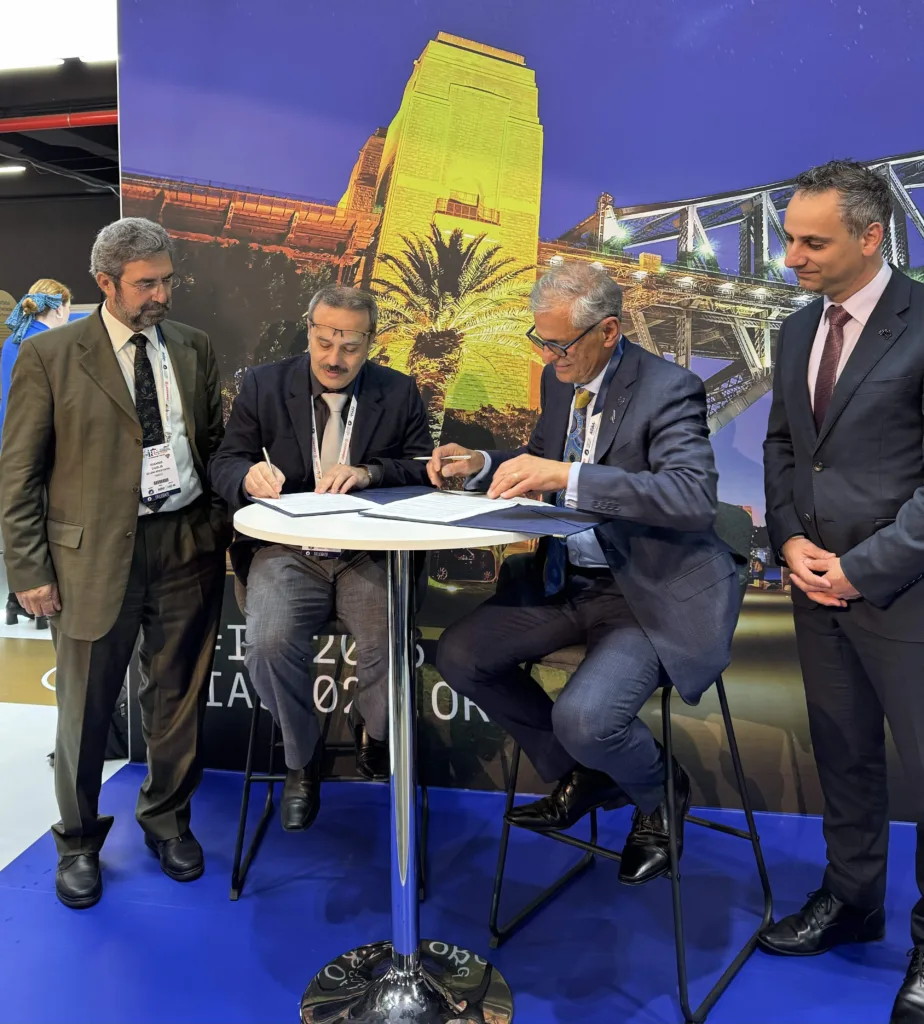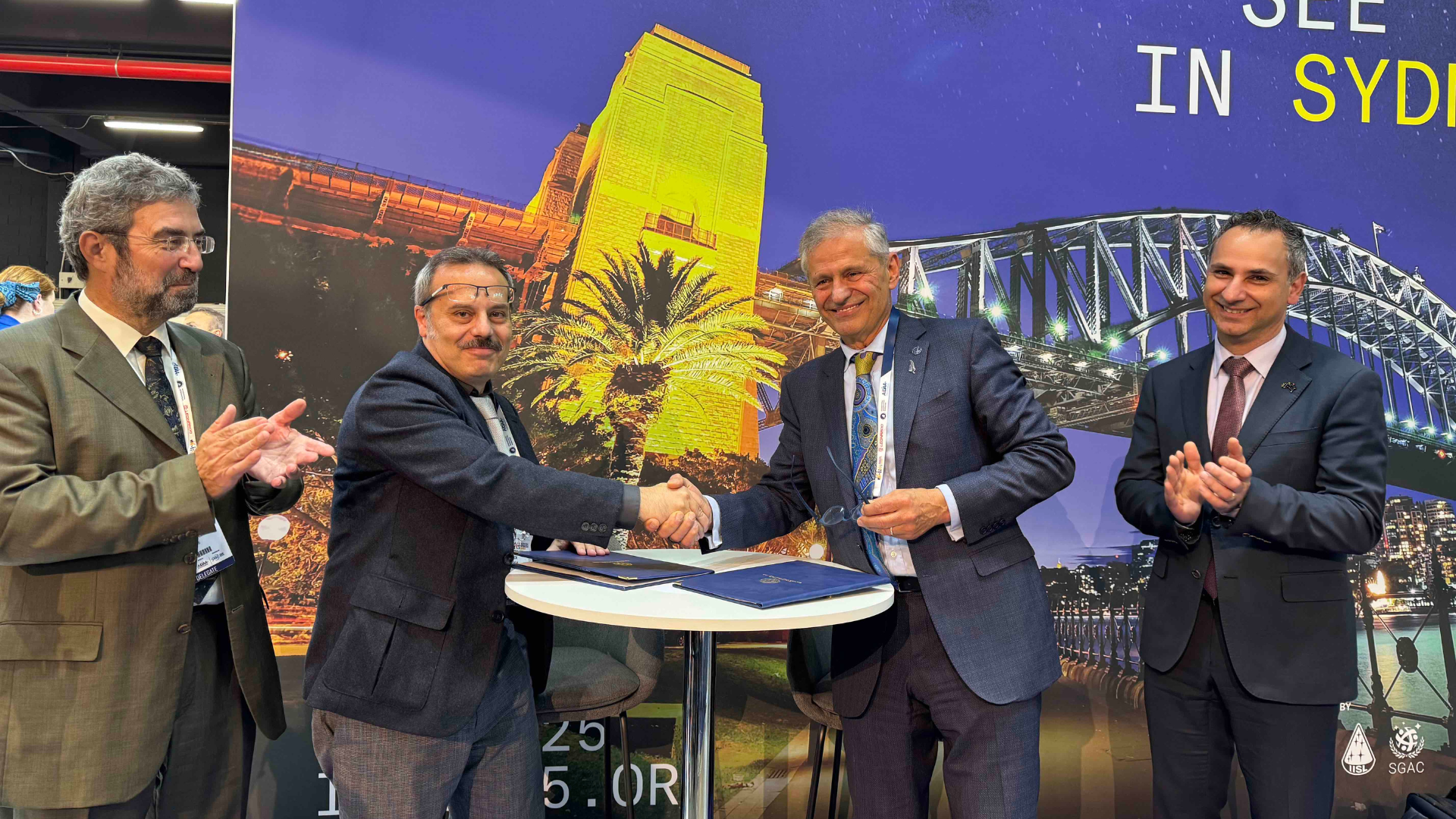SmartSat Cooperative Research Centre (SmartSat CRC) and the Hellenic Space Centre (HSC) have signed a landmark Memorandum of Understanding (MOU) at the International Astronautical Congress (IAC). This agreement marks a pivotal step in enhancing international cooperation in space science, technology, and innovation between Australia and Greece.
The MOU aims to harness the complementary strengths of SmartSat CRC and the Hellenic Space Centre by fostering joint research, sharing scientific and technical information, and exploring synergies between the Kanyini Mission and HSC’s National Microsatellite Program through coordinated data acquisition and AI applications. It also encourages the exchange of experts and other collaborative activities to advance space technology and research.
The collaboration will initially focus on several key areas:
- Microsatellites: Both countries are advancing capabilities in microsatellite technology, with SmartSat CRC leading Australia’s space and research initiatives and HSC developing Greece’s National Microsatellite Program. The new partnership aims to integrate AI and bolster multi-sector collaborations.
- Earth Observation: Joint research on Earth observation technologies and applications in agriculture, natural disaster monitoring, environmental sustainability, maritime surveillance, and climate change adaptation.
- Space Science and Academic Collaborations: Including areas such as Space Domain Awareness, IoT, and Space Communications, with a shared focus on radio frequency and optical communications.
- Commercial Networking: To promote collaboration between academic, industrial, and governmental stakeholders from both countries to foster space research and technology commercialisation.

Prof. Andy Koronios, CEO of SmartSat CRC, commented: “The collaboration between SmartSat CRC and the Hellenic Space Centre offers exciting new opportunities for our two nations to leverage the significant potential of space technologies to improve life here on Earth.”
“We can work ‘hand-in-hand’ to solve major problems such as preventing, responding to and mitigating the risks of wildfires, supporting agriculture and protecting our environment. Australia and Greece have had a long and positive relationship, and this agreement creates an opportunity to build a strong relationship in advanced technologies, such as the next generation of satellites, telecommunications and AI technologies. With my Greek background, I am particularly proud of the prospects of this partnership,” Prof. Koronios added.
Dr Nick Sergis, CEO of Hellenic Space Centre, said: “This agreement marks the beginning of a very promising collaboration between our countries in the domain of space, including related technologies, applications, products, research and innovation.”
“Both countries have critical needs, mainly imposed by the global climate crisis, that microsatellites and Earth Observation products, in particular, can address, at least to some degree. Both countries are also very active in space research carried out in prominent institutes – such as SmartSat – by renowned researchers. This MOU comes, therefore, as a natural step forward to strengthen space capabilities and co-create new opportunities for the space ecosystem,” Dr Sergis added.
HSC’s National Microsatellite Program, in partnership with the European Space Agency, plans to construct and launch 15 microsatellites by 2026 as part of a €200 million national space program. Supported by the European Recovery Fund, this initiative will enhance disaster management, environmental monitoring, and support for public agencies, in an effort to address challenges like climate change both at a national and global level.
